Ukraine's Oleg Verniaiev on the AT&T American Cup and moving on after London
Ukraine's Oleg Verniaiev on the AT&T American Cup and moving on after London
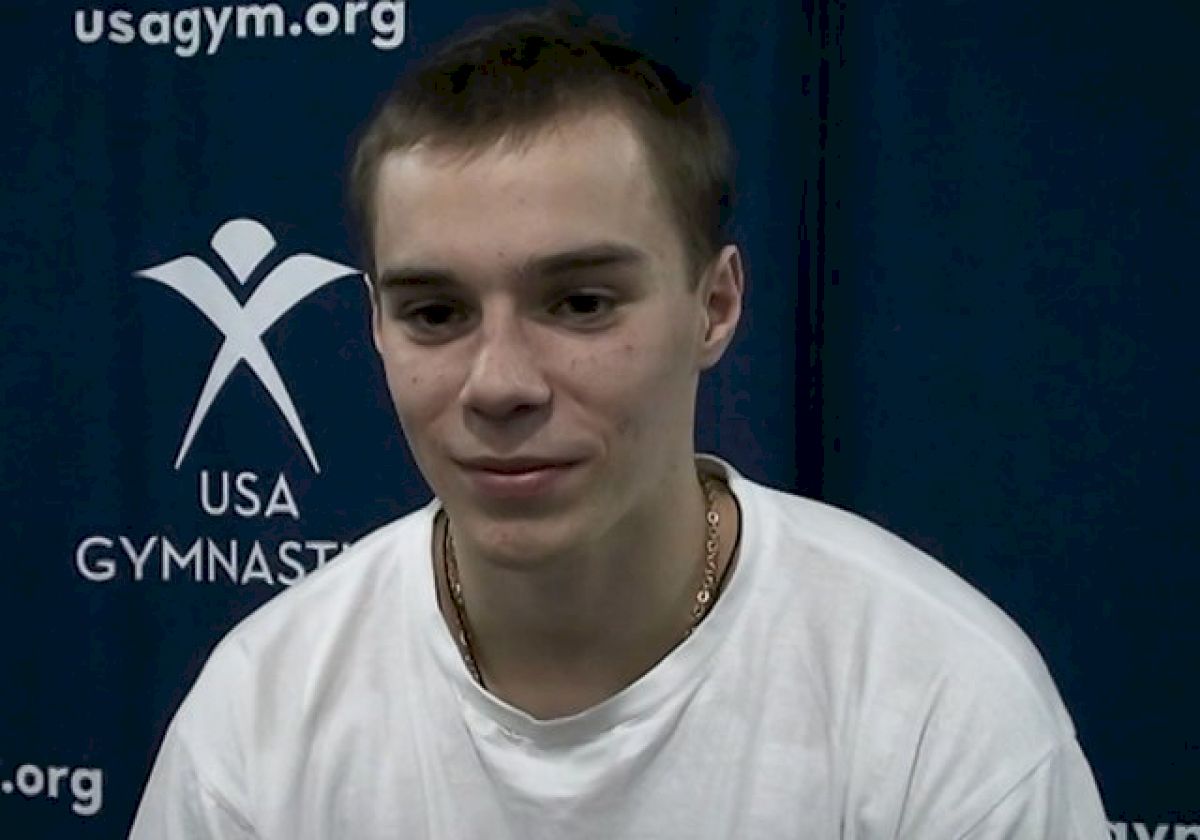
On March 2, 2013, Gymnastike caught up with 19-year-old Oleg Verniaiev of Ukraine, after he finished second behind Team USA's Jake Dalton at the 2013 AT&T American Cup. Verniaiev's second consecutive appearance at the AT&T American Cup was particularly impressive in light of a nagging back injury that hampered him throughout the competition.
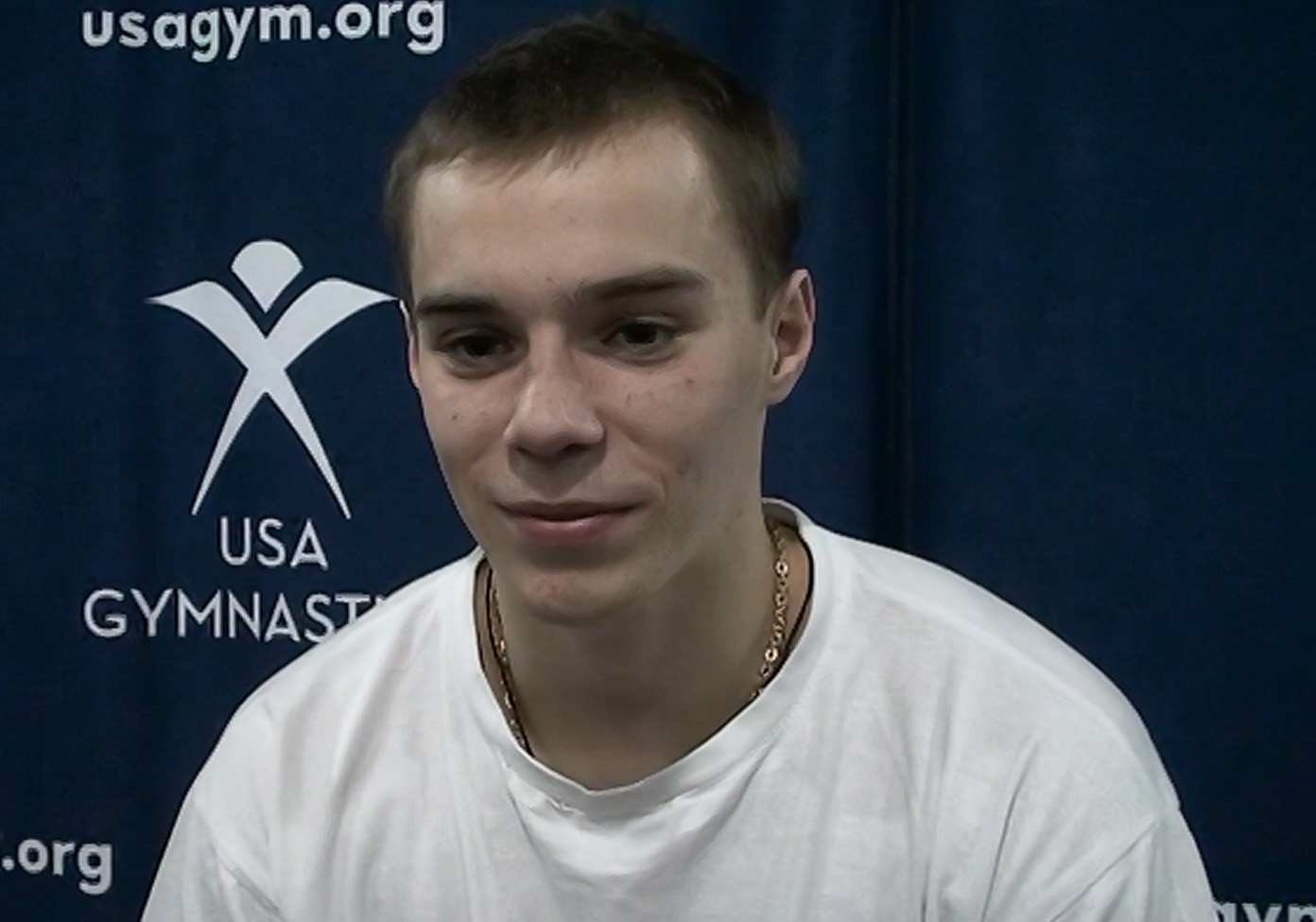
Photo: A smiling Verniaiev during his post-competition interview
Verniaiev, the reigning Ukrainian national champion, competed in the London Olympics, finishing 11th all around and fourth with the team. In this interview, he reveals with great honesty the difficult emotions he and his team faced after Ukraine's controversial fourth-place finish in London. There, after the team had already begun celebrating its bronze medal finish in the arena, Japan filed an appeal of Kohei Uchimura's low pommel horse score just minutes before the medal ceremony. After several agonizing minutes, the judges raised Uchimura's score, resulting in a silver medal for Japan, a historic bronze for Great Britain, and a bump off the podium to fourth place for Ukraine. The humble and talented Verniaiev discusses how he's moved on and is looking ahead to Rio.
Gymnastike conducted this interview in Russian and translated it to English in the transcript below.
________________________________________________________________________________
Gymnastike: Oleg, great job today. Can you please tell me how your meet went?
Verniaiev: It didn't start out very well. When I arrived at the arena today, on my first event, I started to have problems with my back. It cramped up and I was unable to bend over or stand up. The doctors rubbed some cream on it and it took a long time to warm up and it was difficult to perform. On my first event, it started to bother me a lot again. Then, on parallel bars, it happened again, and because of this, I didn't do very well. But, in general, it was a good result. A lot of mistakes, but a good result.
Gymnastike: What was your highlight today?
Verniaiev: I think finishing in second place.
Gymnastike: You of course went to the Olympics, and your team performed well, but ended up in fourth place. Can you please tell me about that experience?
Verniaiev: What happened was the board showed we were in third place. And the Japanese team filed an appeal. Their score was raised because [the judges] decided to count [Kohei Uchimura's pommel horse] dismount. [Japan] ended up in second place and our placement was dropped.
Gymnastike: How did it feel to go through this?
Verniaiev: It was disappointing. We were upset, because we already had one foot on the podium as Olympic bronze medalists, and then we missed it.
Gymnastike: How did this affect the rest of your Olympic experience?
Verniaiev: It was hard. We put so much out there emotionally. I then competed in the all around. It was my first time in such a competition, and I had absolutely no emotion. I just came out and went through [the competition] like a robot, with absolutely no emotion. Usually, I have adrenaline . . . I probably left all my emotions out there [in the team competition].
Gymnastike: And when you look back on London now . . .
Verniaiev: I don't.
Gymnastike: Not at all?
Verniaiev: No.
Gymnastike: Only ahead?
Verniaiev: Yes. What for? You can't change anything. I need to prepare for the future and prove that they were wrong.
Gymnastike: Looking ahead, what do you hope to accomplish in your gymnastics over the next three years?
Verniaiev: I don't like to guess, but to the extent it's possible, well, an Olympic gold medal is the ultimate dream for every athlete. Because of this, I think this is the goal. To reach this goal, you need to work gradually to prepare and get in the best possible shape for the Rio Olympics.
Gymnastike: What is your next competition?
Verniaiev: I have Ukrainian championships when I return, and then immediately after, we have a world cup event in France, for individual event finals.
Gymnastike: Thank you.
Verniaiev: You're welcome.
Photo: Verniaiev focuses during podium training for the 2013 AT&T American Cup
Related Content
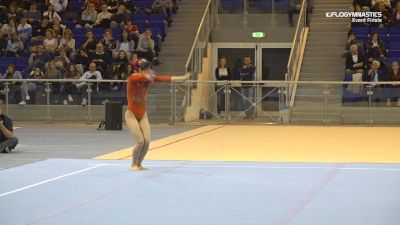 Replay: Ayumi Niiyama - Floor, Japan - 2019 City of Jesolo Trophy
Replay: Ayumi Niiyama - Floor, Japan - 2019 City of Jesolo TrophyJun 26, 2023
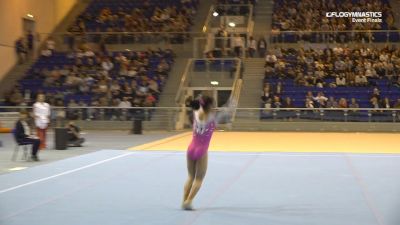 Replay: Zhang Jin - Floor, China - 2019 City of Jesolo Trophy
Replay: Zhang Jin - Floor, China - 2019 City of Jesolo TrophyJun 26, 2023
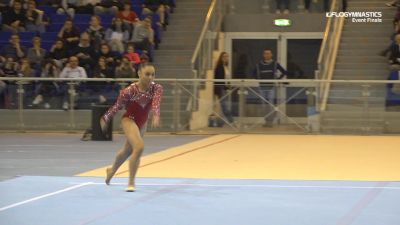 Replay: Emma Malabuyo - Floor, USA - 2019 City of Jesolo Trophy
Replay: Emma Malabuyo - Floor, USA - 2019 City of Jesolo TrophyJun 26, 2023
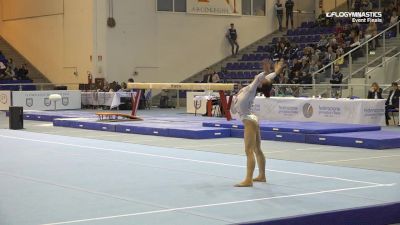 Replay: Qi Qi - Floor, China - 2019 City of Jesolo Trophy
Replay: Qi Qi - Floor, China - 2019 City of Jesolo TrophyJun 26, 2023
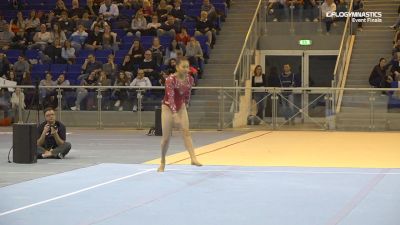 Replay: Sunisa Lee - Floor, USA - 2019 City of Jesolo Trophy
Replay: Sunisa Lee - Floor, USA - 2019 City of Jesolo TrophyJun 26, 2023
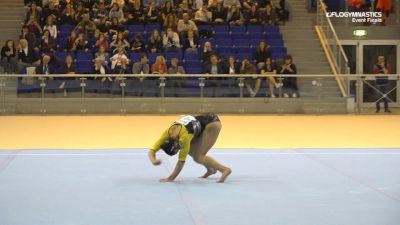 Replay: Desiree Carofiglio - Floor, Italy - 2019 City of Jesolo Trophy
Replay: Desiree Carofiglio - Floor, Italy - 2019 City of Jesolo TrophyJun 26, 2023
 Replay: Lander vs Mars Hill | Mar 28 @ 6 PM
Replay: Lander vs Mars Hill | Mar 28 @ 6 PMMar 29, 2024
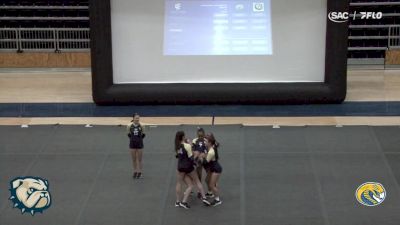 Replay: Coker vs Wingate | Mar 21 @ 6 PM
Replay: Coker vs Wingate | Mar 21 @ 6 PMMar 22, 2024
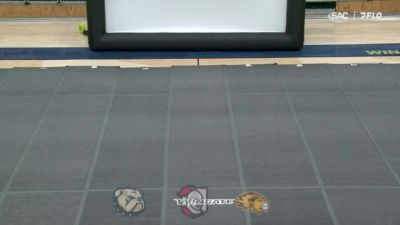 Replay: Wingate Tri-Meet - Acrobatics & Tumbling | Mar 15 @ 5 PM
Replay: Wingate Tri-Meet - Acrobatics & Tumbling | Mar 15 @ 5 PMMar 15, 2024